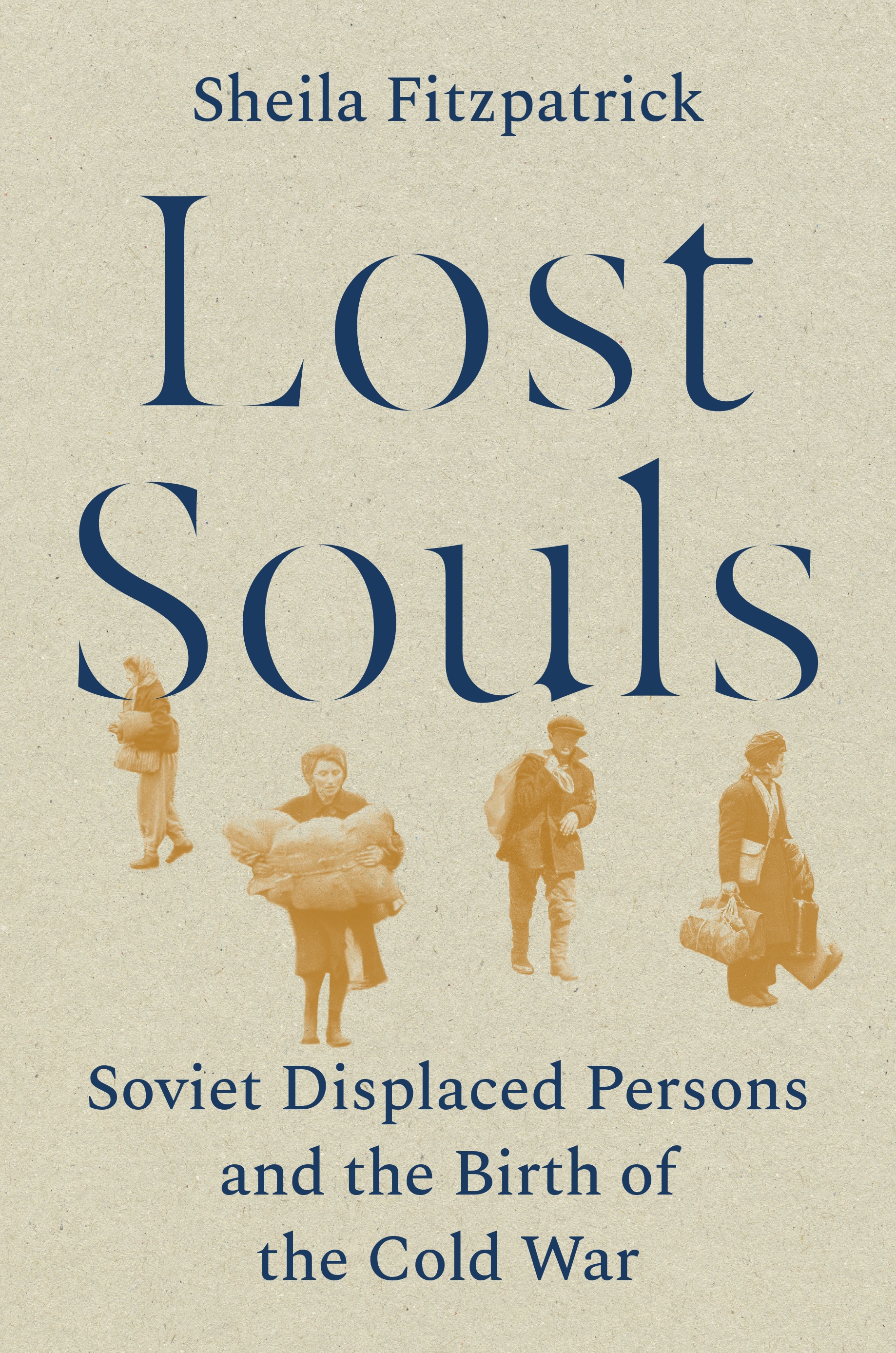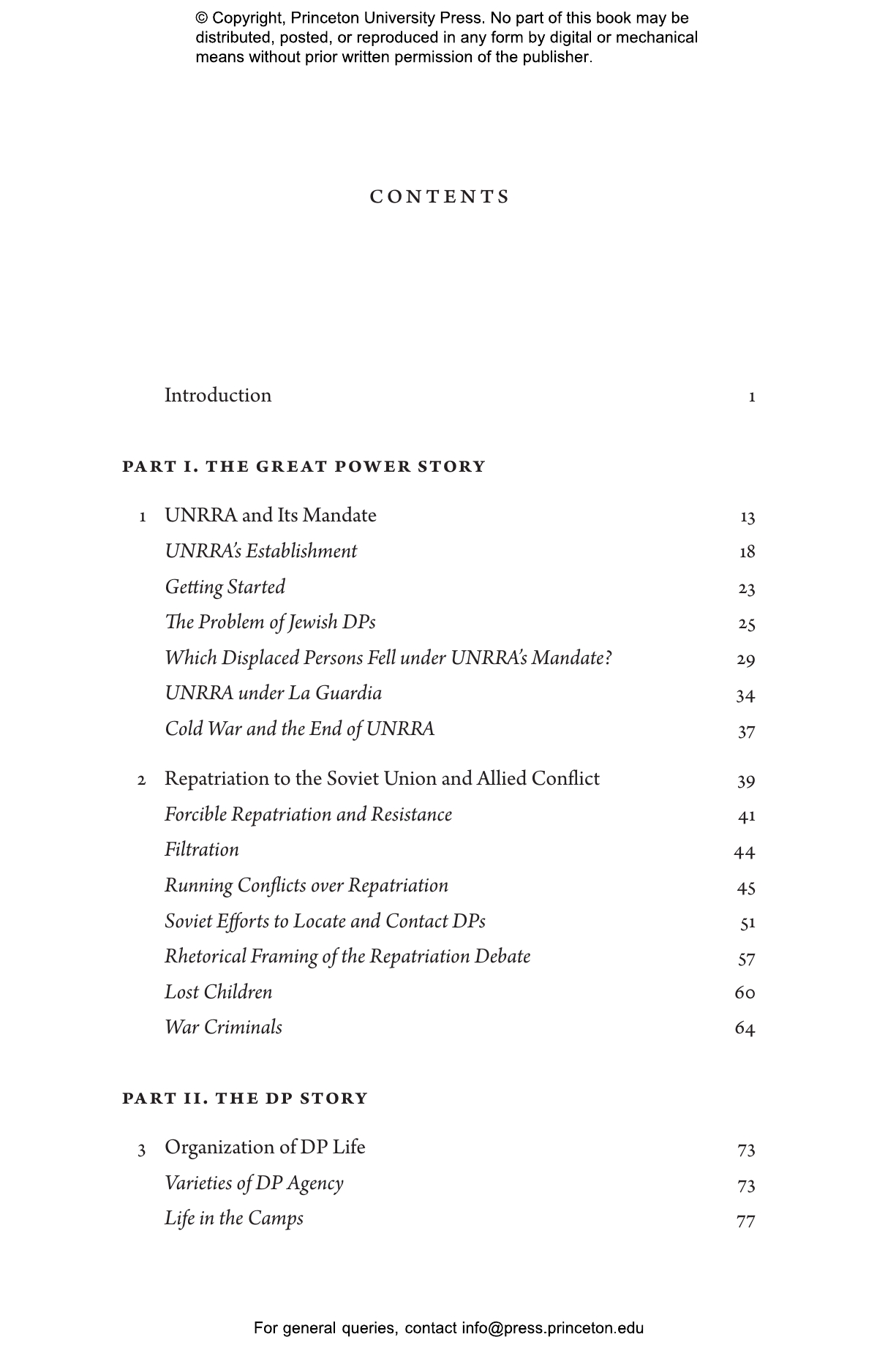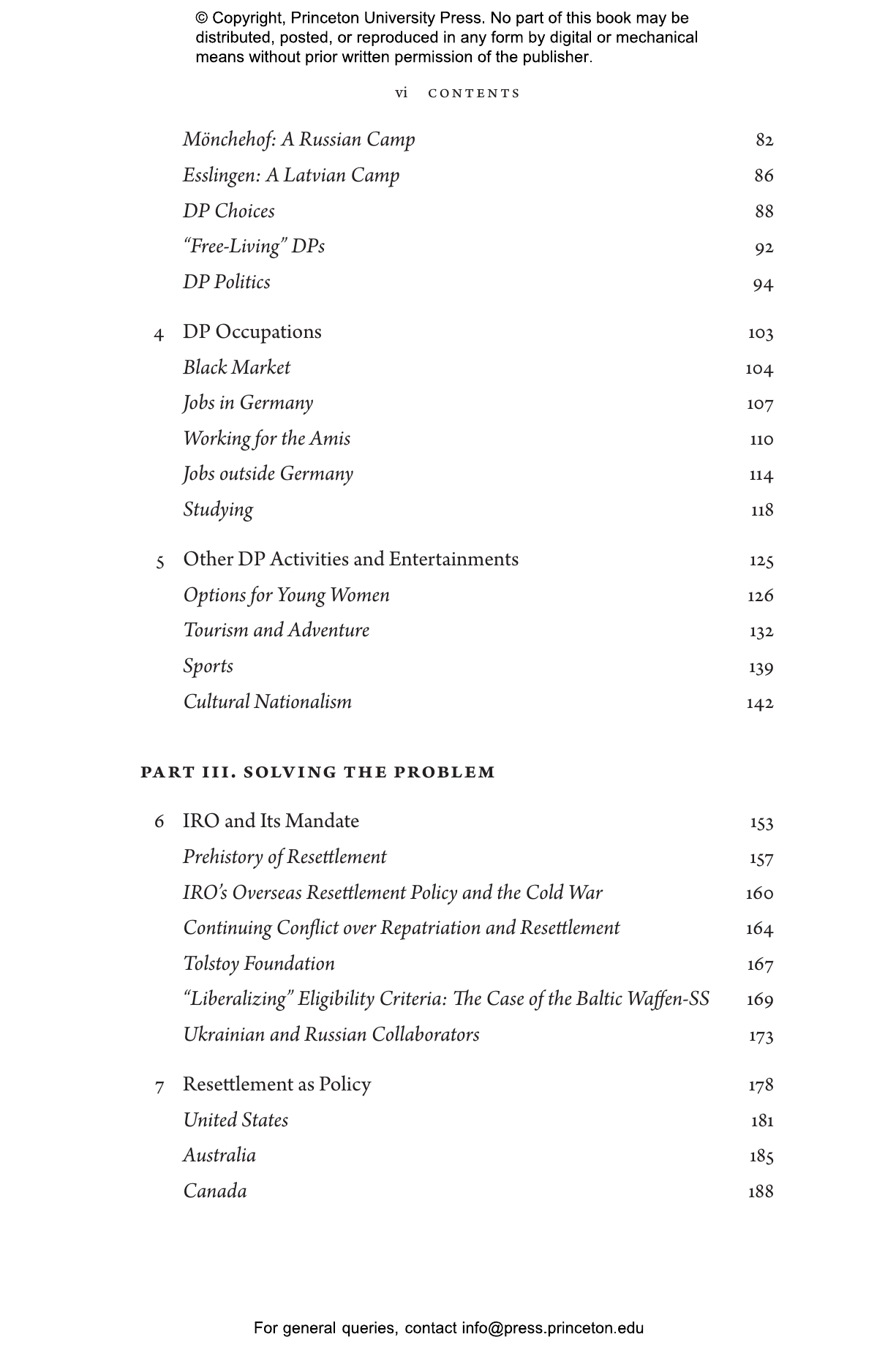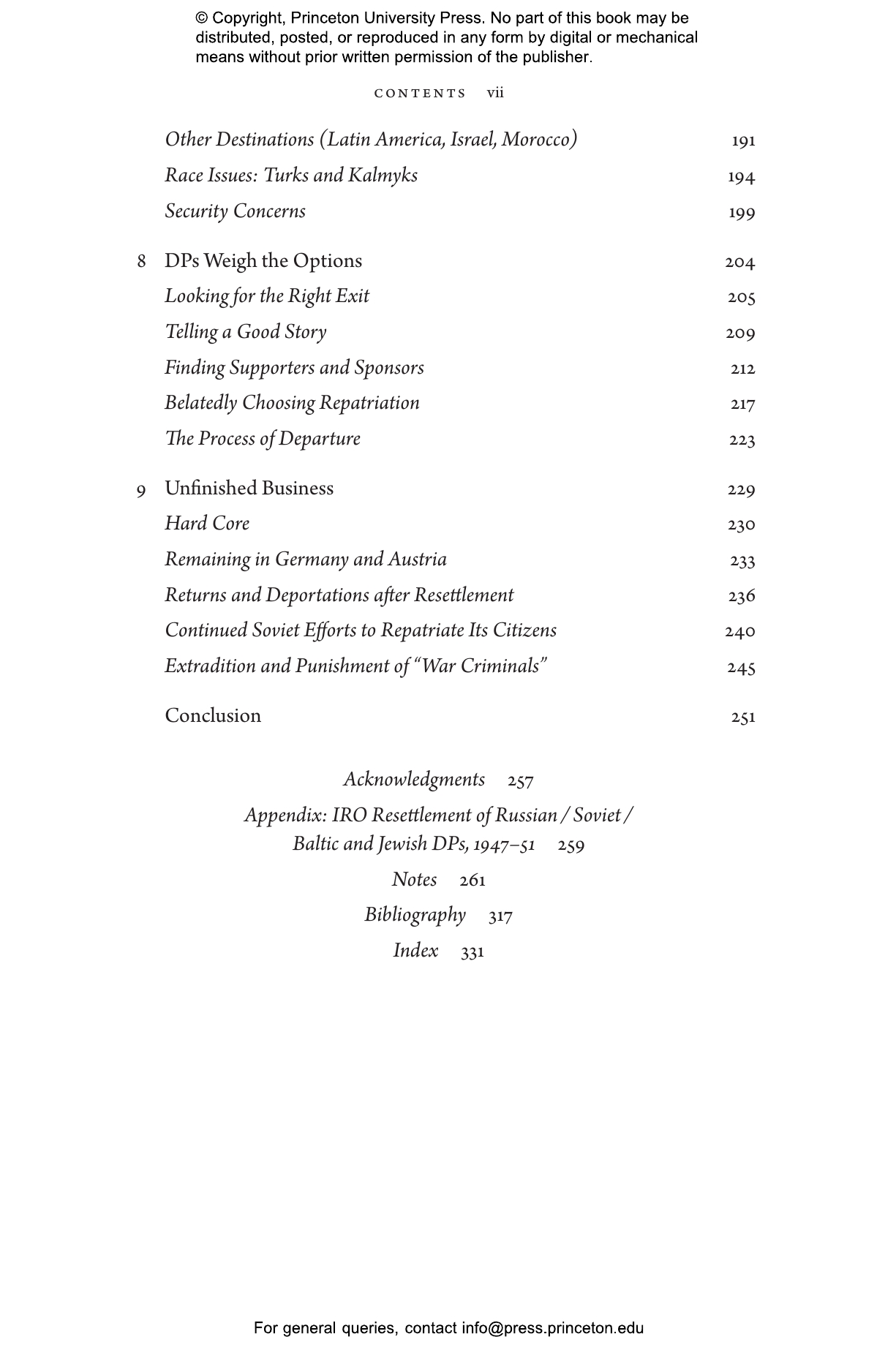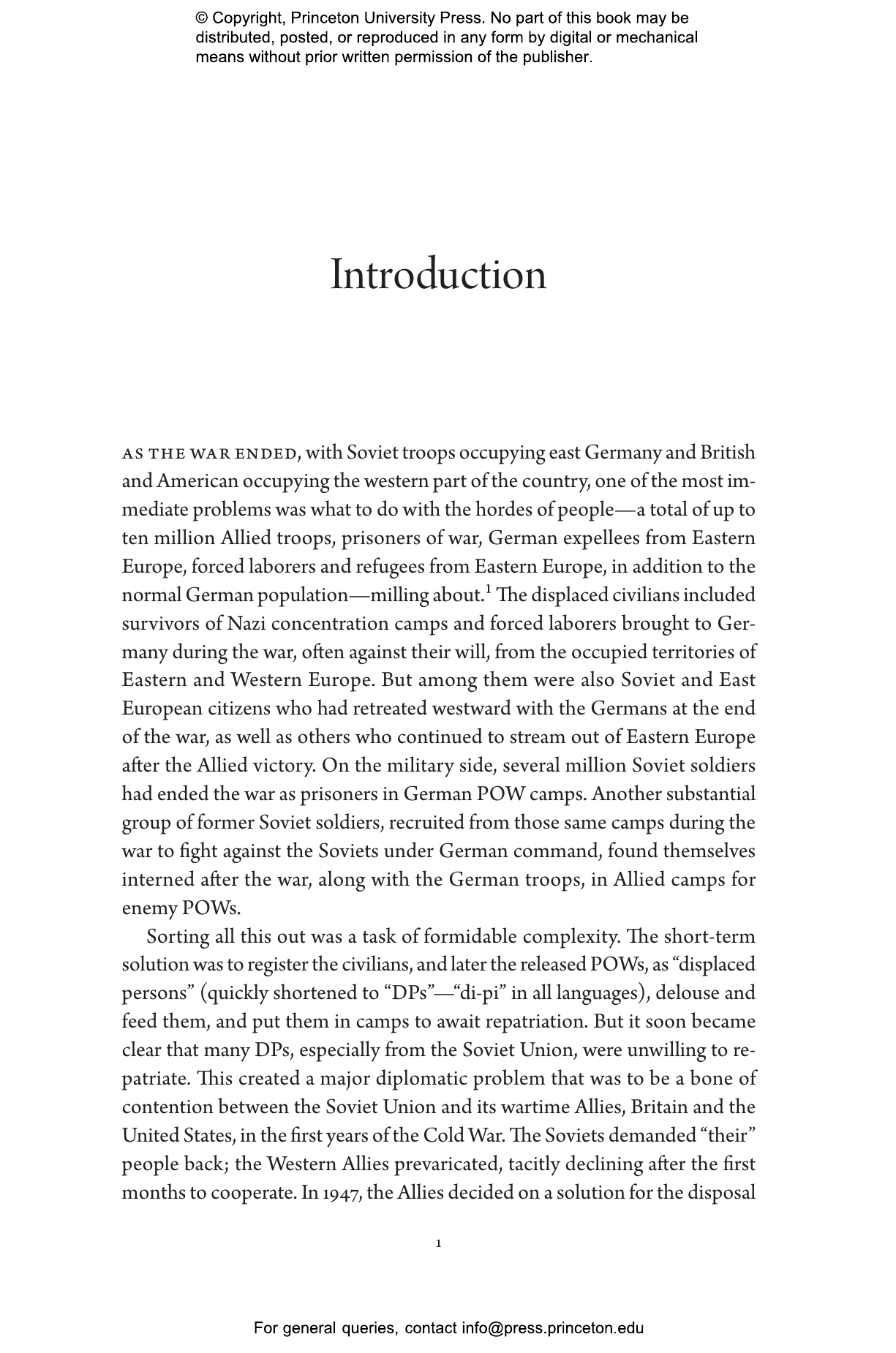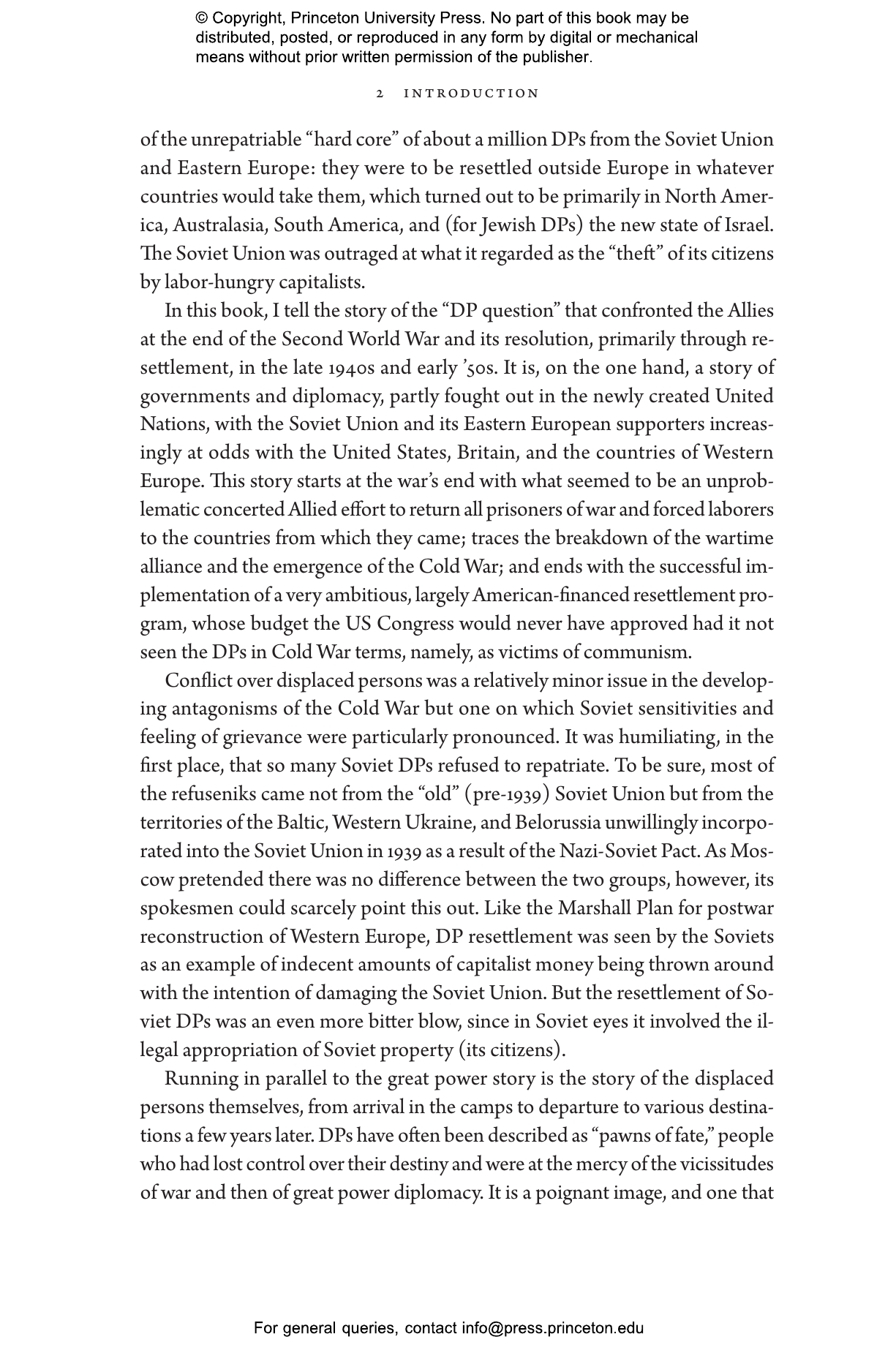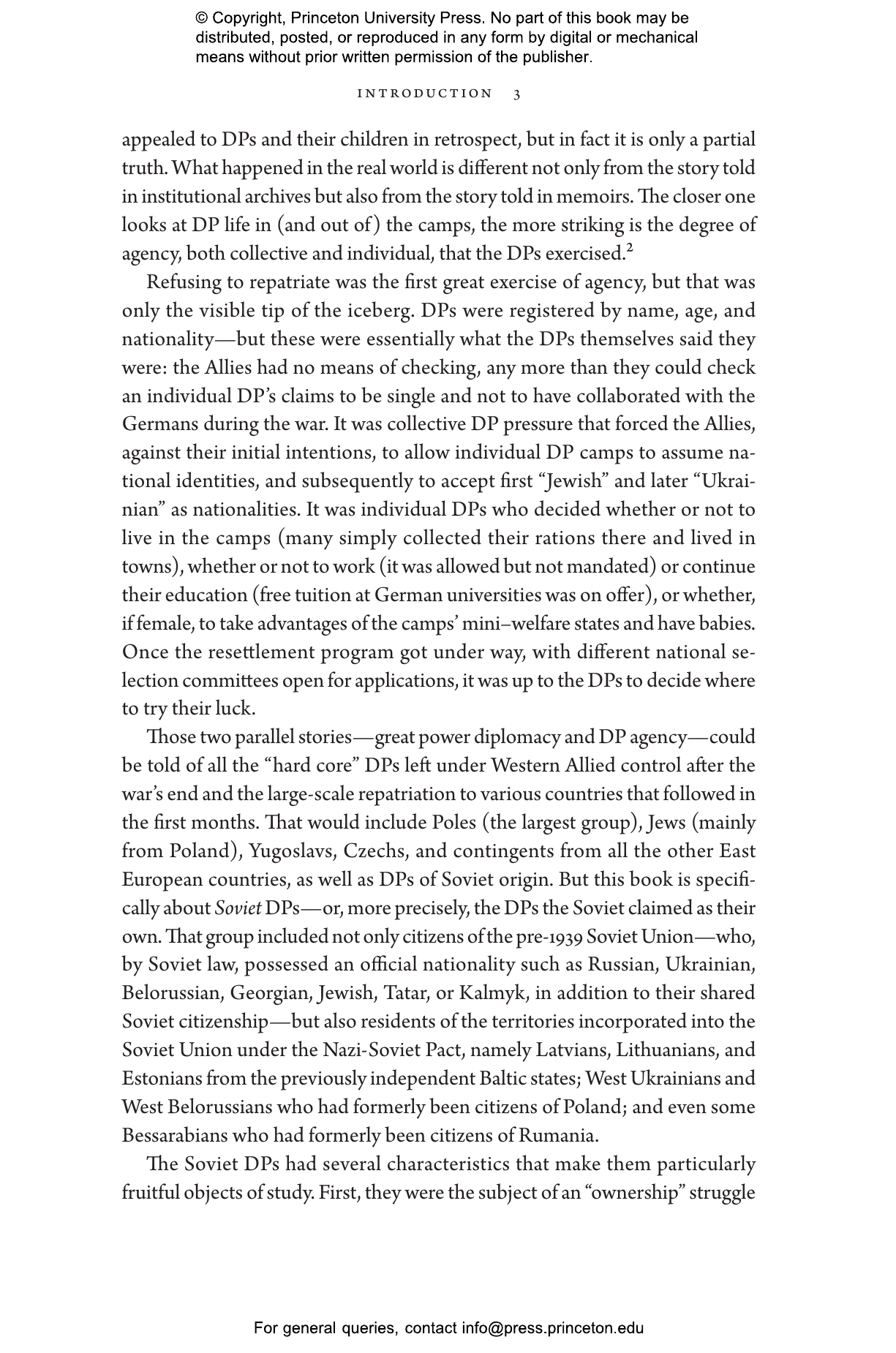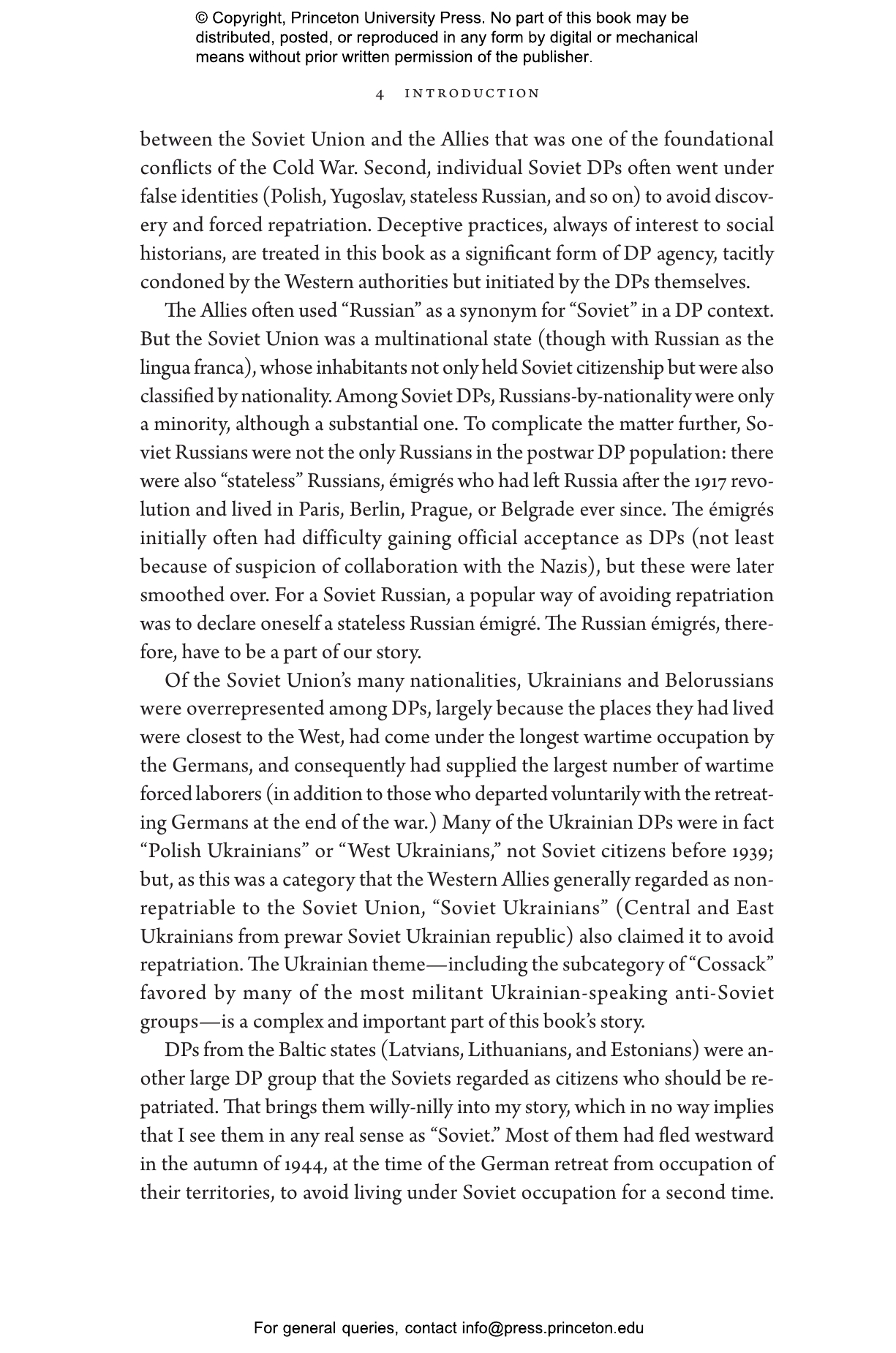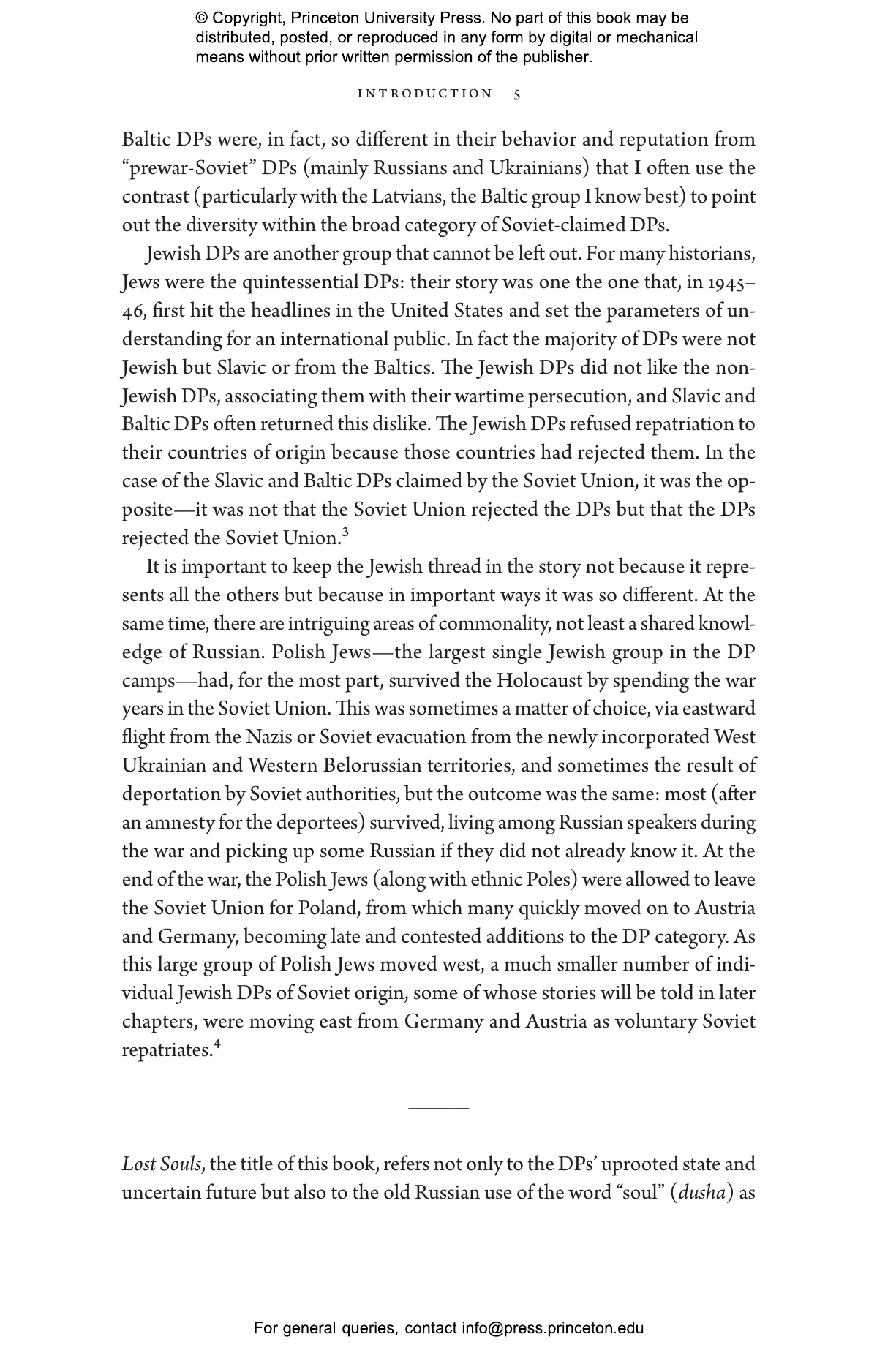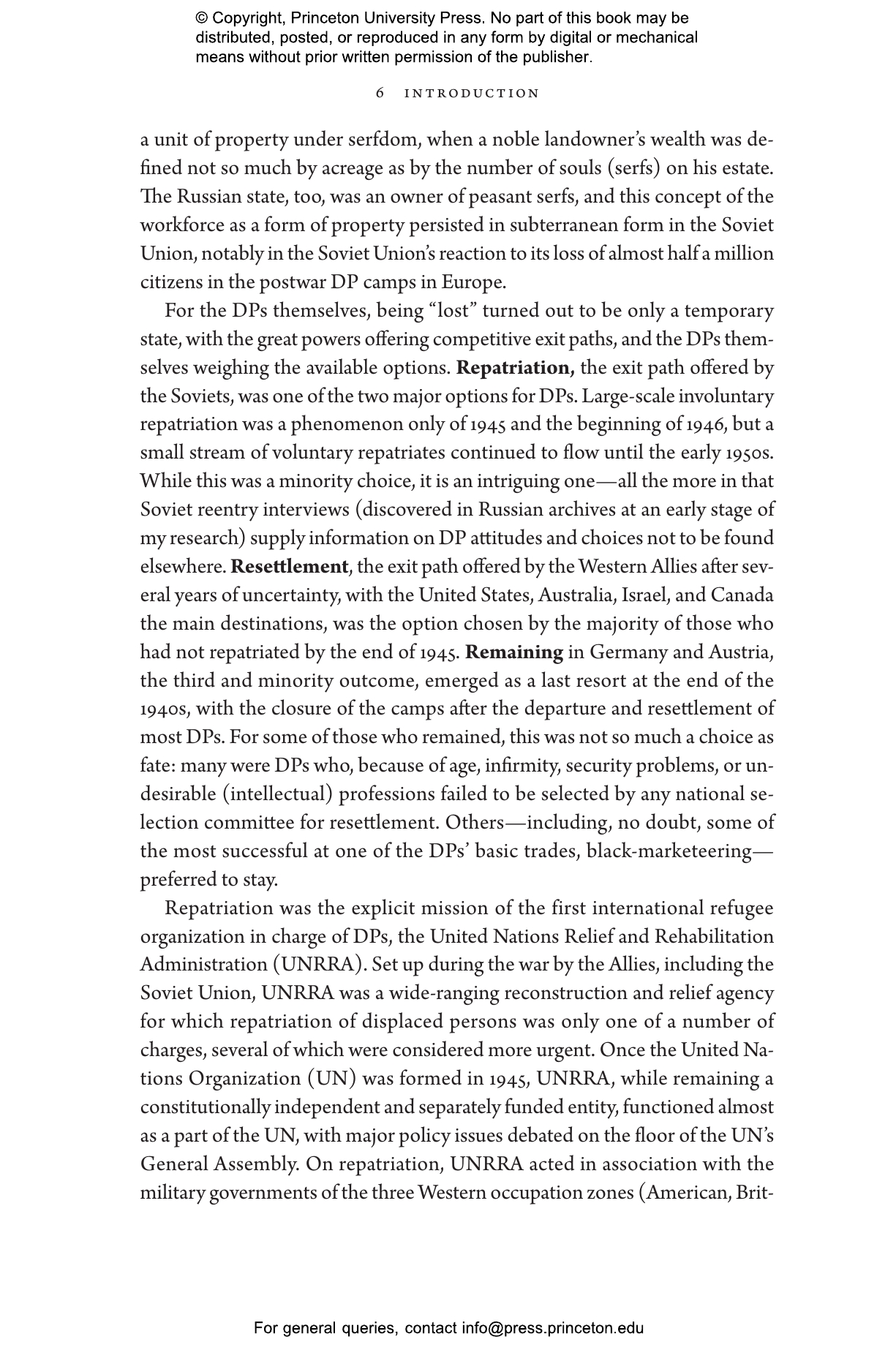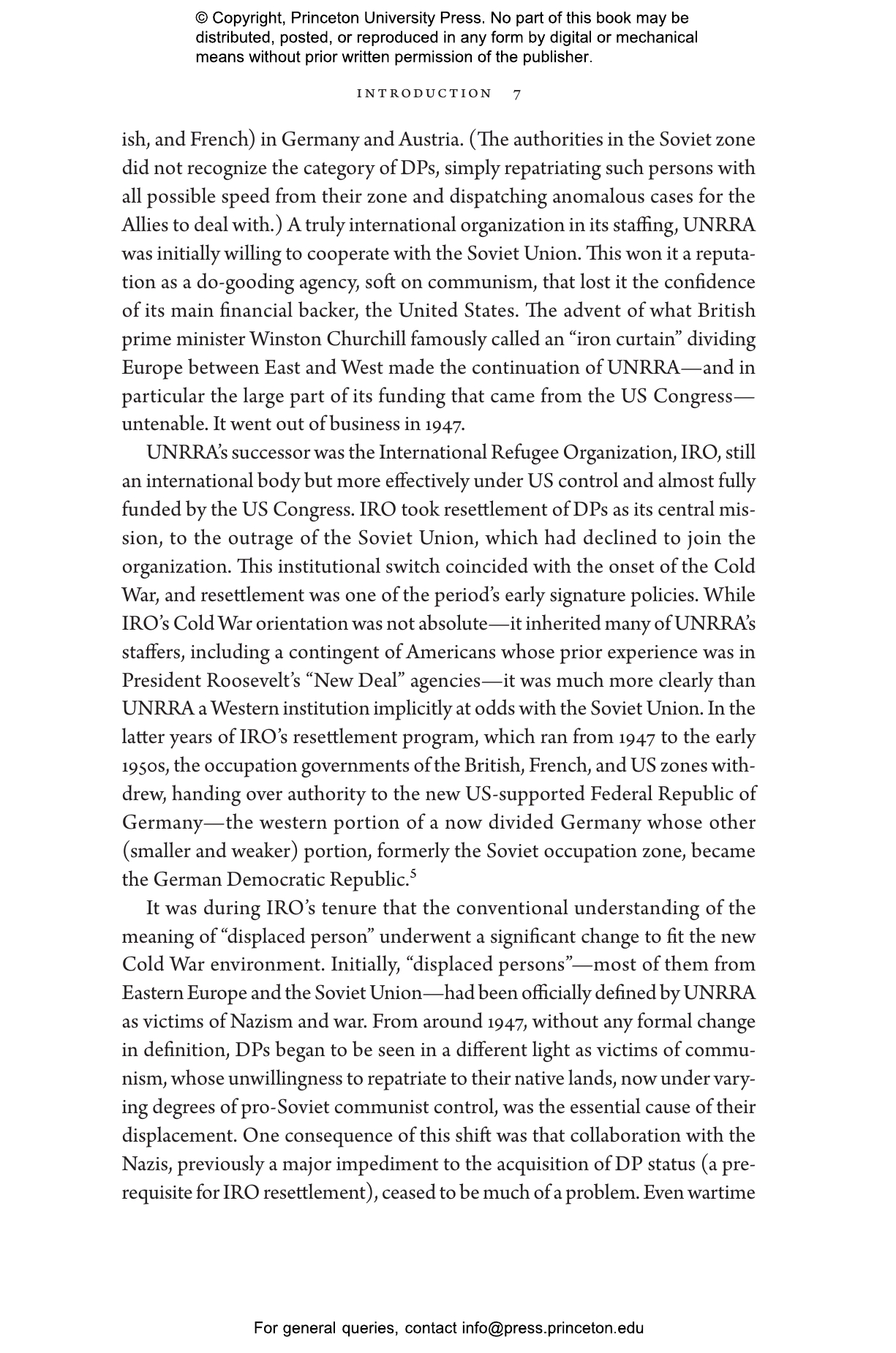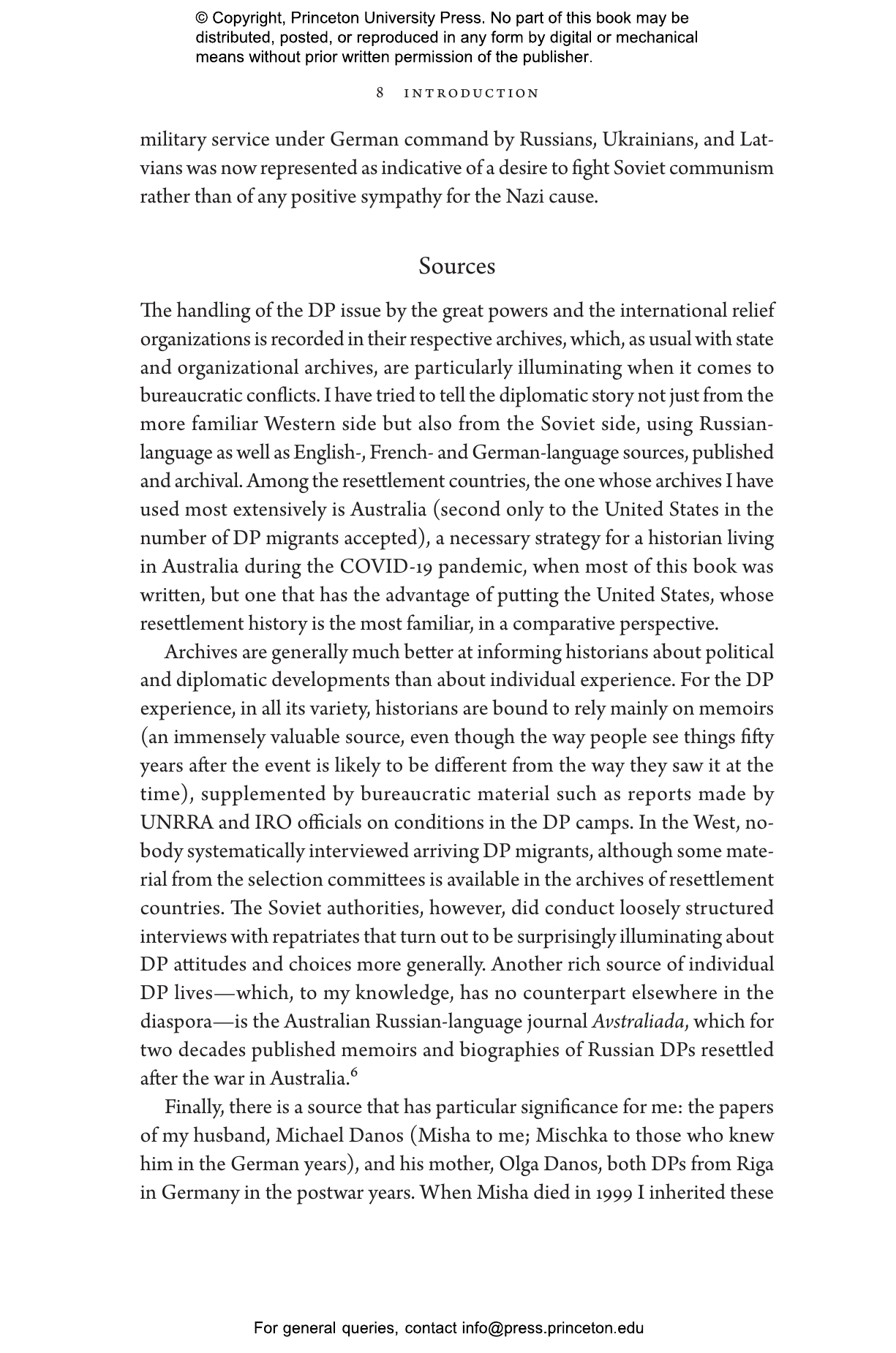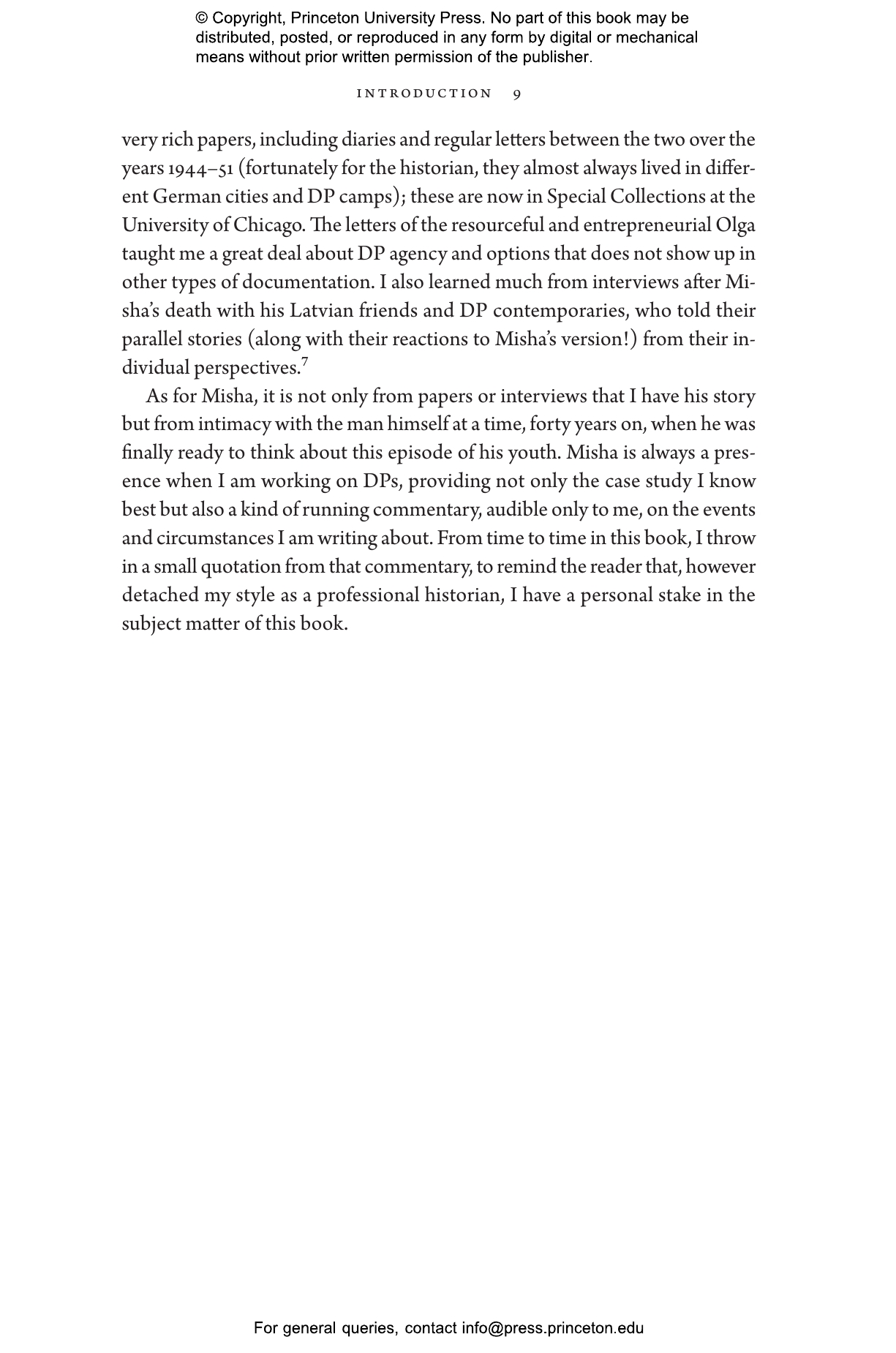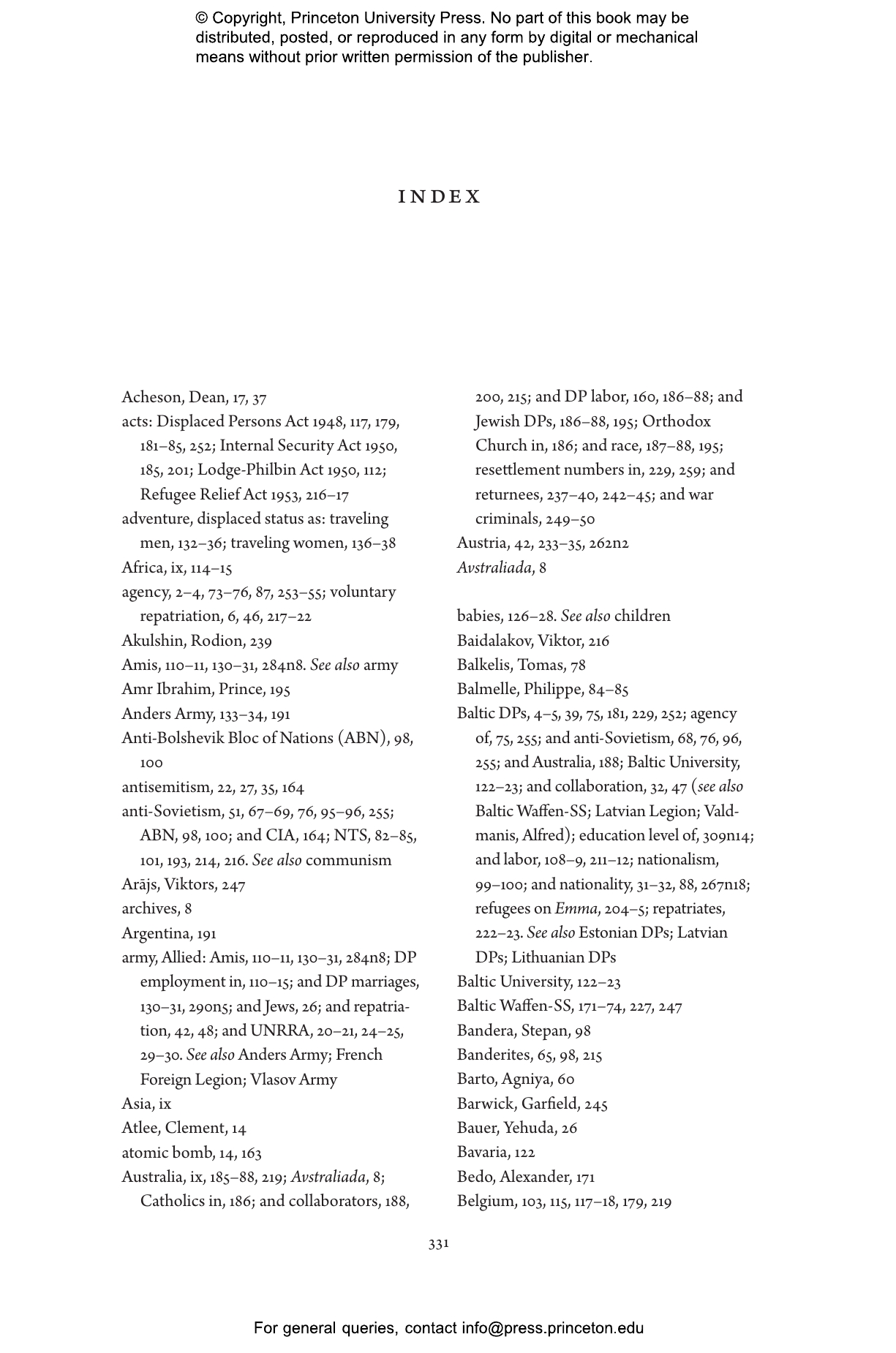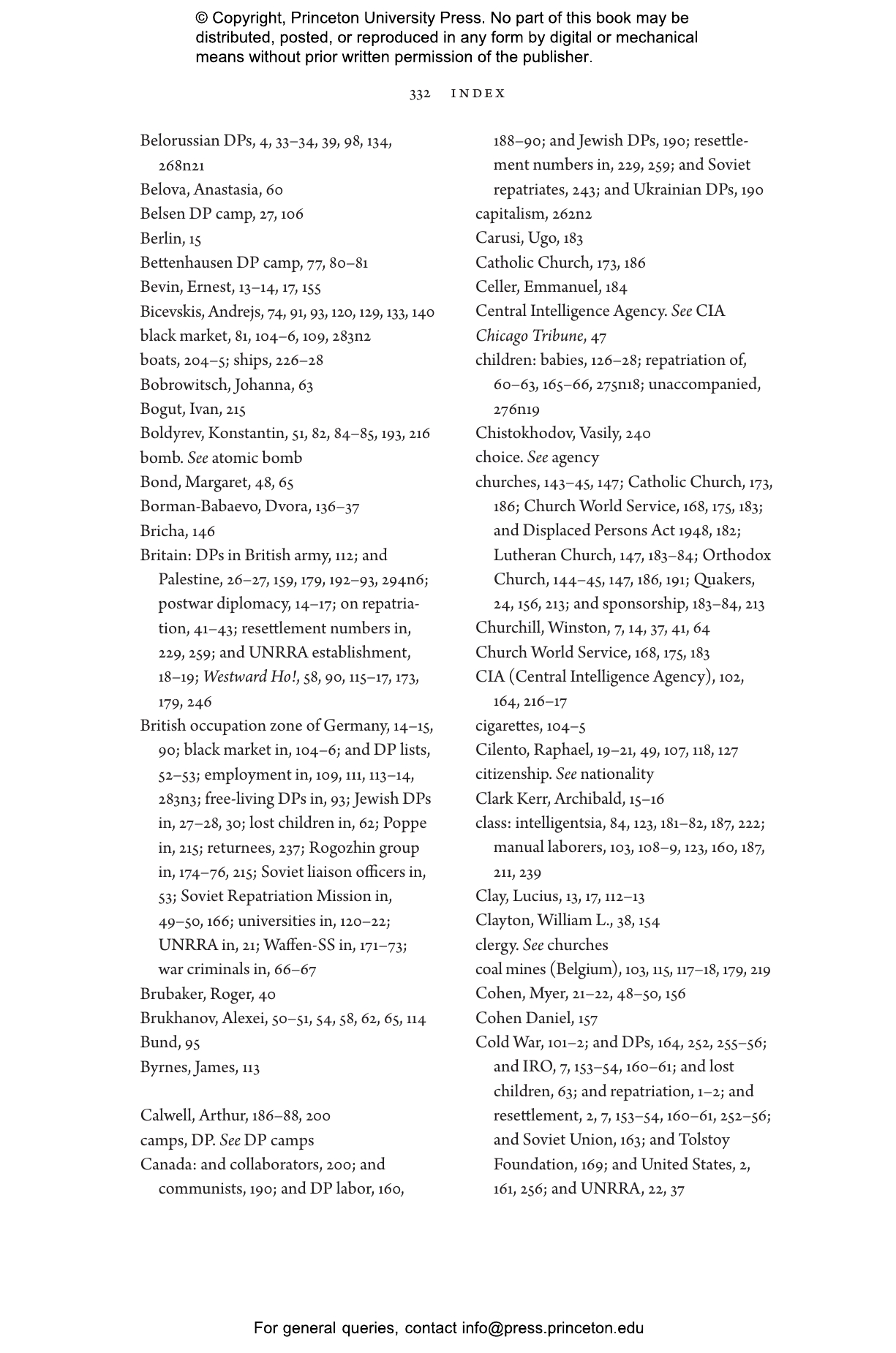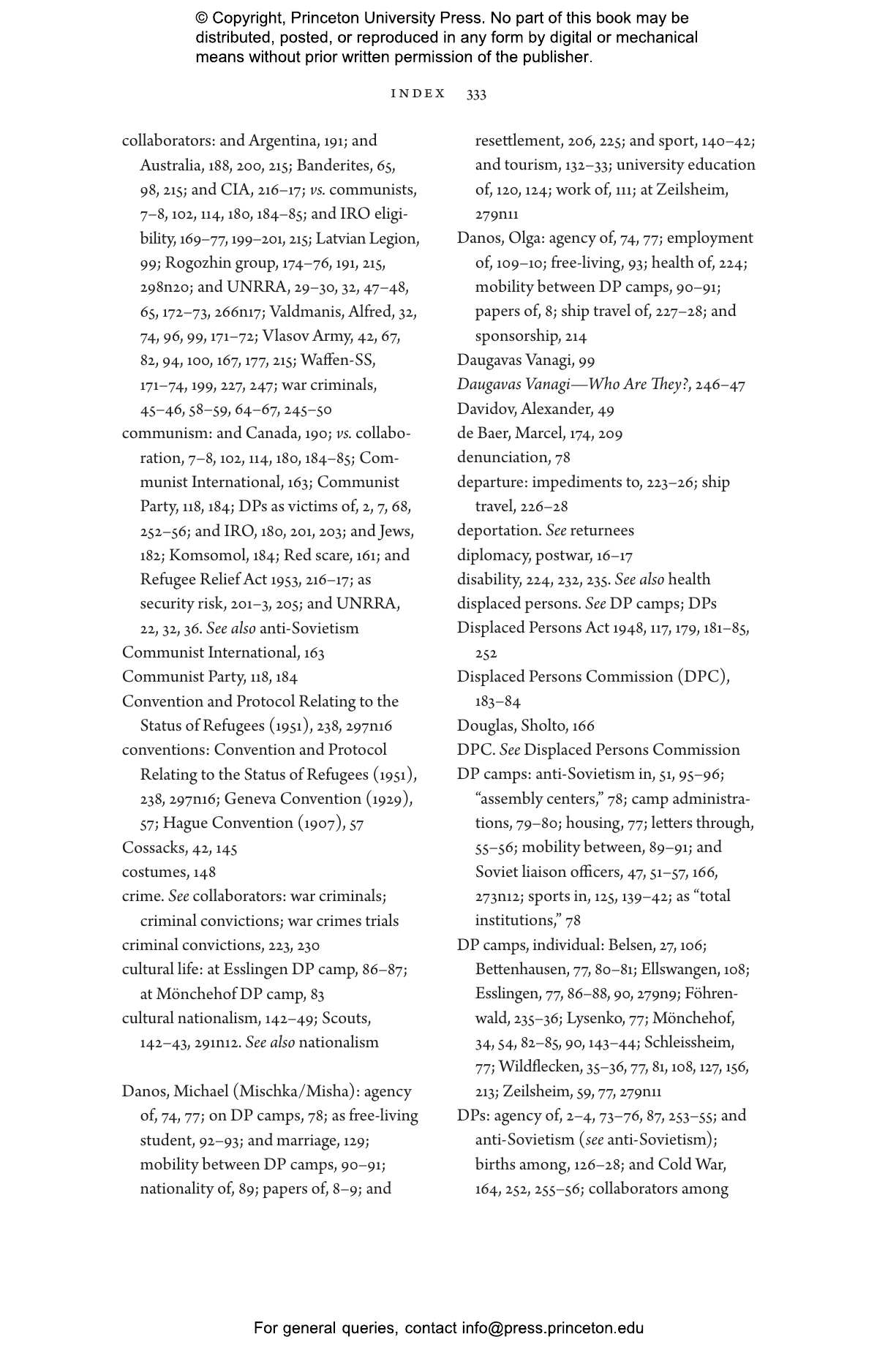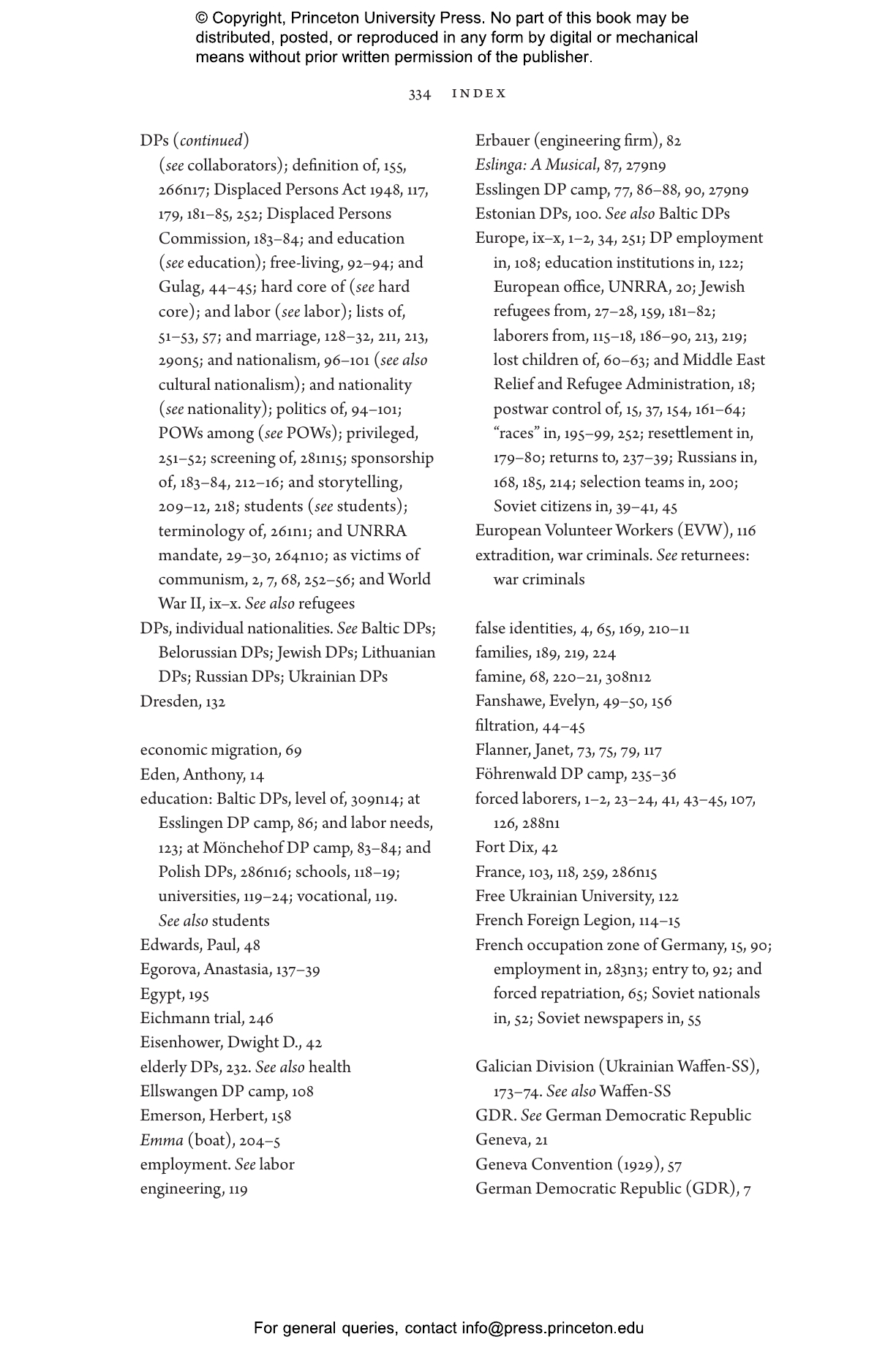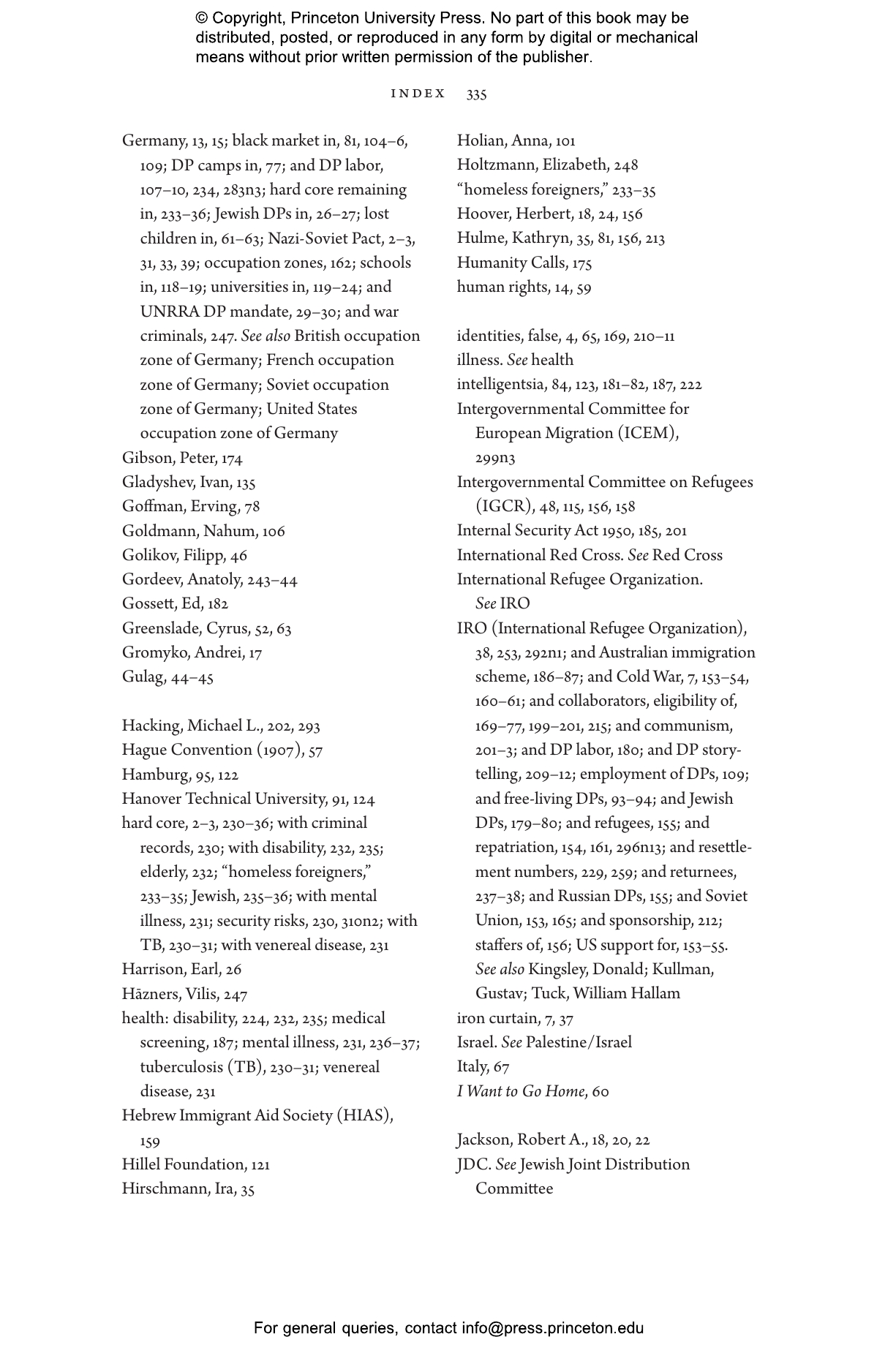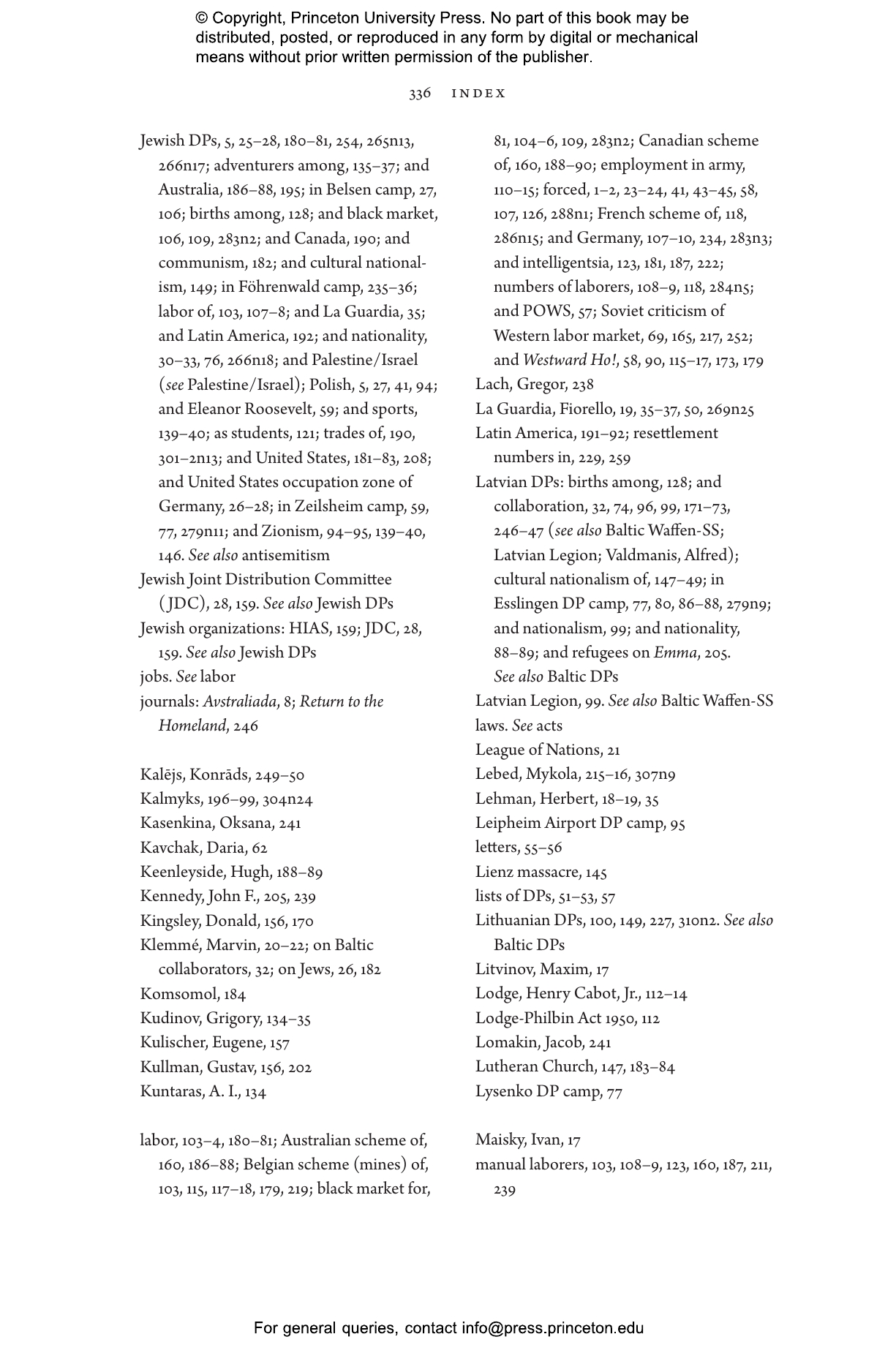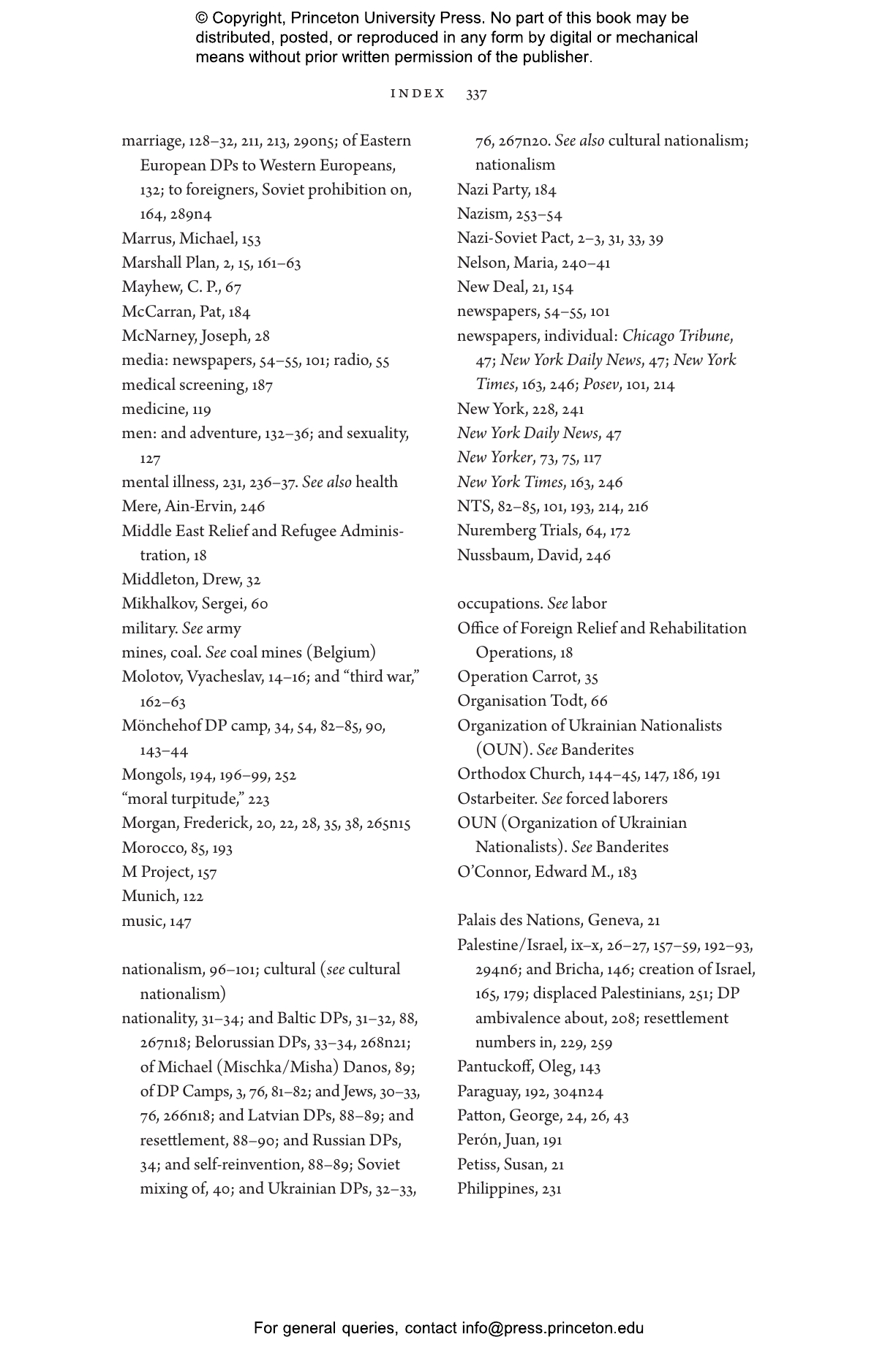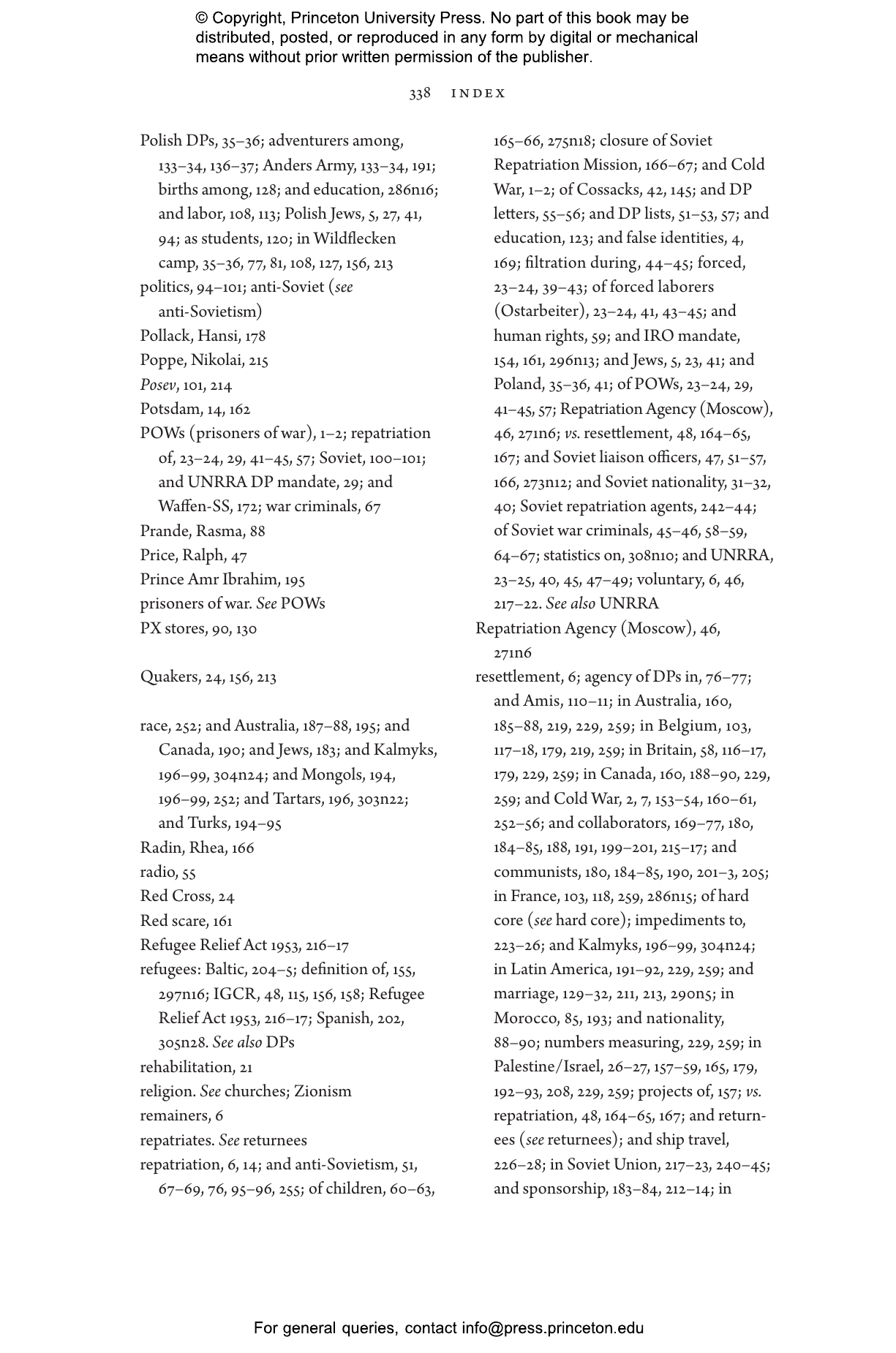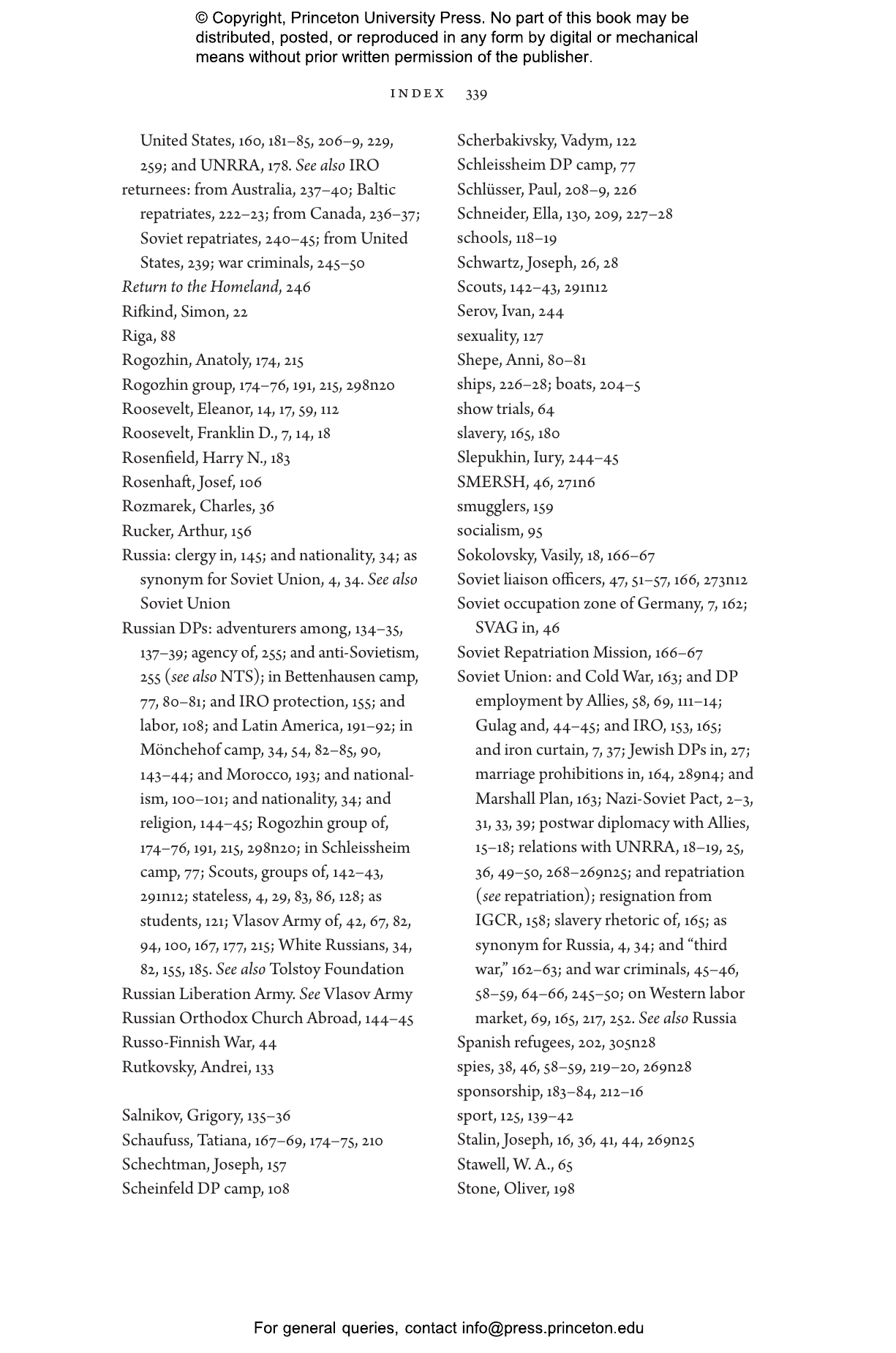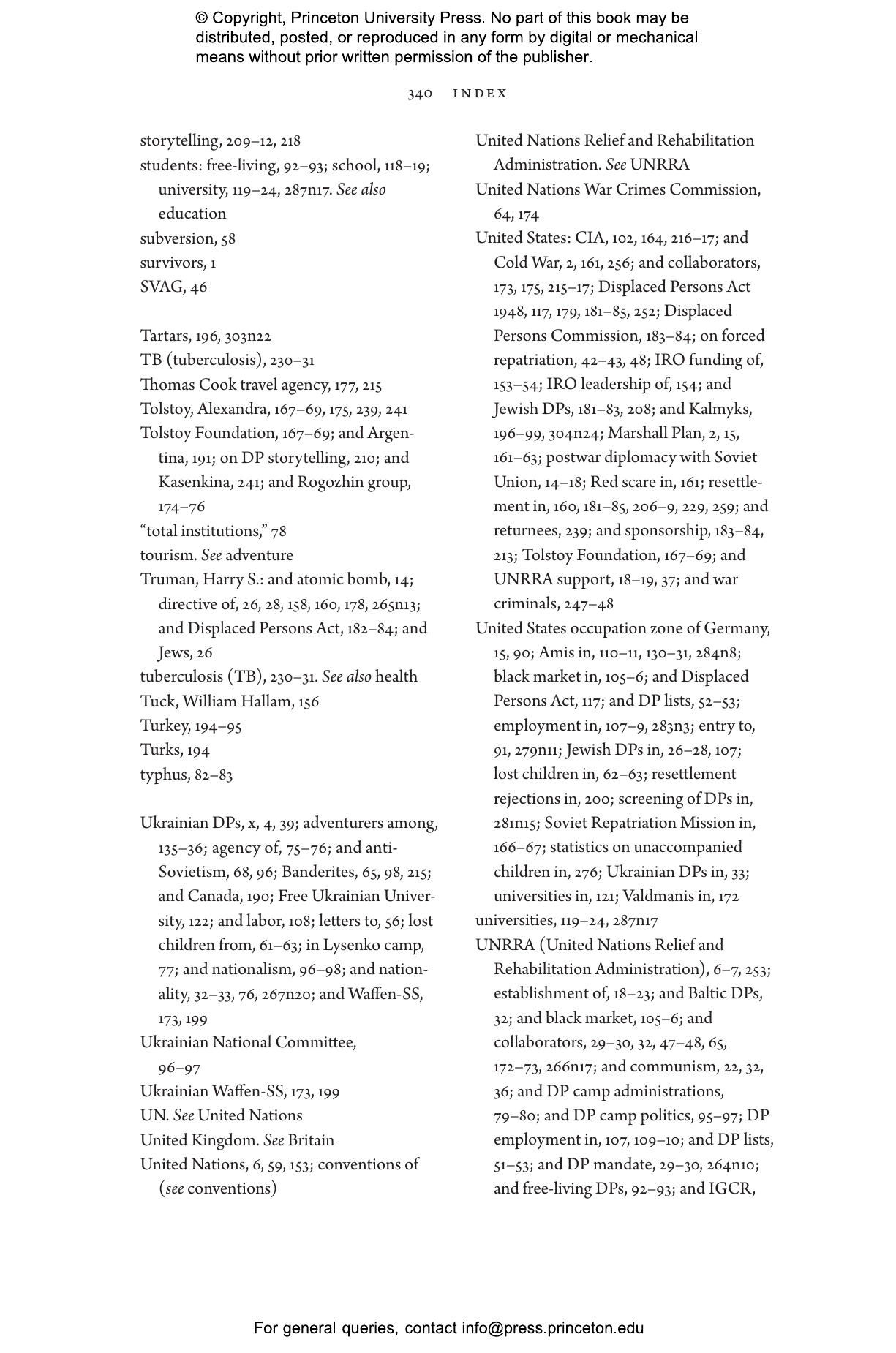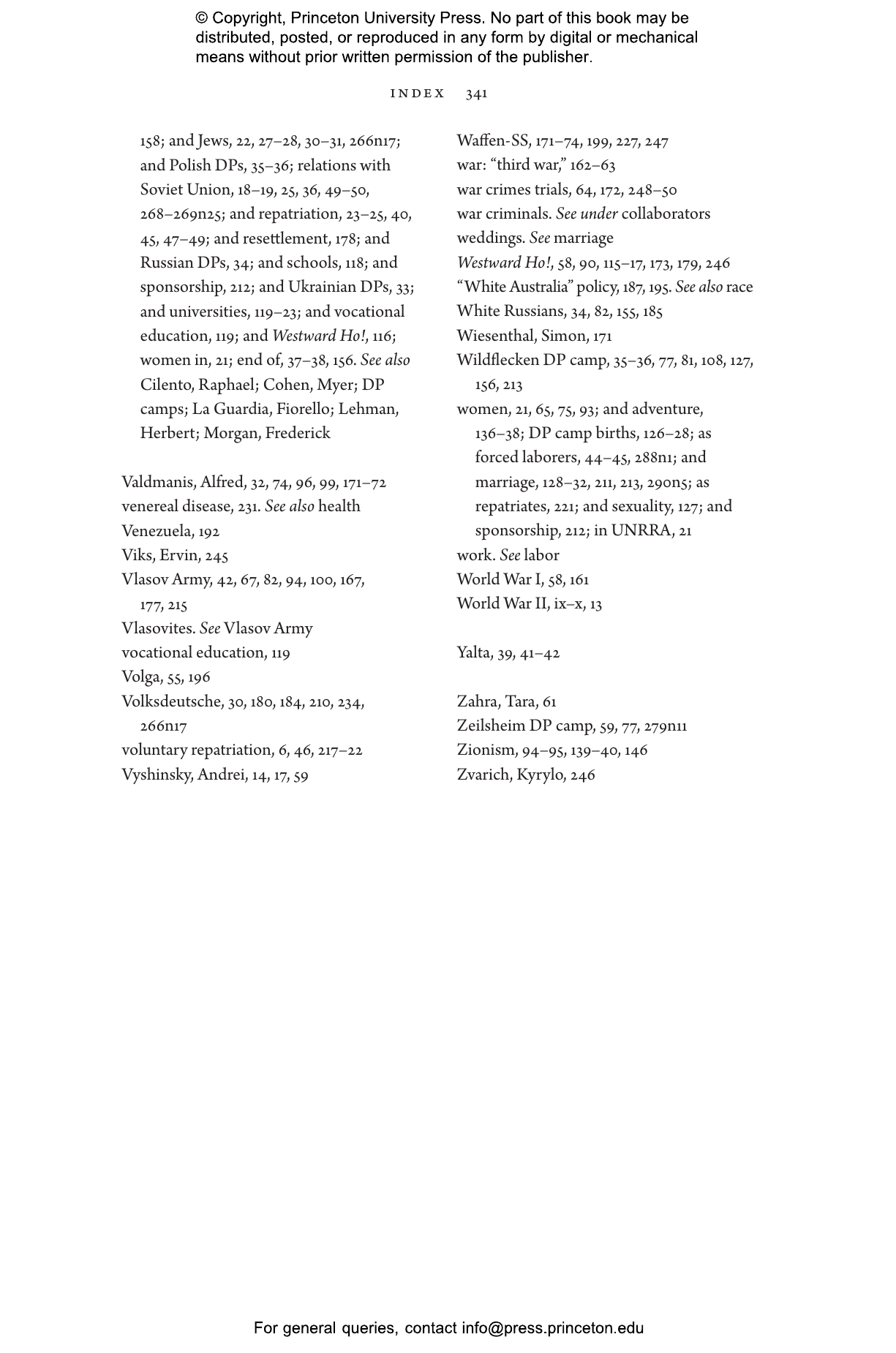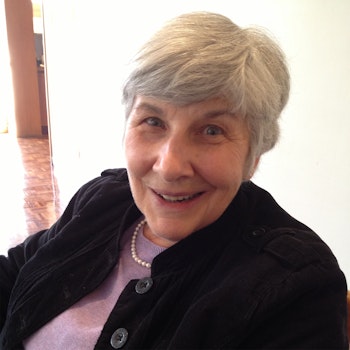When World War II ended, about one million people whom the Soviet Union claimed as its citizens were outside the borders of the USSR, mostly in the Western-occupied zones of Germany and Austria. These “displaced persons,” or DPs—Russians, prewar Soviet citizens, and people from West Ukraine and the Baltic states forcibly incorporated into the Soviet Union in 1939—refused to repatriate to the Soviet Union despite its demands. Thus began one of the first big conflicts of the Cold War. In Lost Souls, Sheila Fitzpatrick draws on new archival research, including Soviet interviews with hundreds of DPs, to offer a vivid account of this crisis, from the competitive maneuverings of politicians and diplomats to the everyday lives of DPs.
American enthusiasm for funding the refugee organizations taking care of DPs quickly waned after the war. It was only after DPs were redefined—from “victims of war and Nazism” to “victims of Communism”—in 1947 that a solution was found: the United States would pay for the mass resettlement of DPs in America, Australia, and other countries outside Europe. The Soviet Union protested this “theft” of its citizens. But it was a coup for the United States. The choice of DPs to live a free life in the West, and the West’s welcome of them, became an important theme in America’s Cold War propaganda battle with the Soviet Union.
A compelling story of the early Cold War, Lost Souls is also a rare chronicle of a refugee crisis that was solved.
Sheila Fitzpatrick is the author of many books, including On Stalin’s Team: The Years of Living Dangerously in Soviet Politics (Princeton), The Shortest History of the Soviet Union, and The Russian Revolution. She is professor of history at the Institute of Humanities and Social Science at the Australian Catholic University and Distinguished Service Professor Emerita at the University of Chicago.
"An instructive lesson in practical politics as well as history. A new look at a historical problem both logistical and humanitarian, with obvious implications today."—Kirkus Reviews
“Fitzpatrick deftly reconstructs the great power struggle of the Soviets to regain ‘their’ half million displaced persons after 1945, interweaving the stories of individuals who either reinvented their identities or succumbed to Soviet pressure to return. Exhaustively researched and elegantly written, Lost Souls is a masterpiece that places the postwar refugee crisis and its unique resolution at the very center of early Cold War history.”—Ruth Balint, author of Destination Elsewhere
“Beautifully written and deeply researched, Lost Souls sheds new light on the history of the displaced millions in Europe after World War II. This timely book shows that at the heart of this history lies the agency of the displaced themselves, who, however constrained by the doings of states and militaries, played a vital role in forging their own postwar identities and, indeed, in shaping the politics of the international refugee regime.”—Libby Garland, Kingsborough Community College and the Graduate Center, City University of New York
“Among this book’s many outstanding features is its emphasis on DPs’ agency and resourcefulness—such as their flouting of regulations and creativeness in inventing stories about themselves and their families—that contributed to their success in getting to where they wanted to go. It also exhibits one of the most precious qualities of a historian—empathy. Lost Souls makes a uniquely valuable contribution to our understanding of postwar European migration.”—Lewis H. Siegelbaum, Michigan State University
“Lost Souls draws on painstaking research in many countries to tell a new and compelling story of the displaced persons of Europe after World War II and their global migration. Bringing together diplomatic and social histories in an original way, this book is a tour de force that reminds us of the complexity of mass migration and the importance of studying refugees as historical actors in their own right.”—Benjamin Tromly, University of Puget Sound
“A brilliant account of the resettlement of millions of displaced persons after World War II. These people were not only victims. Many were also agents of their own survival. Fitzpatrick’s intimate knowledge of the refugee world breathes life into this story, revealing the ingenious self-fashioning of survivors, men and women trapped in the violence of war and the crosscurrents of the great power politics of the Cold War.”—Jay Winter, Yale University


